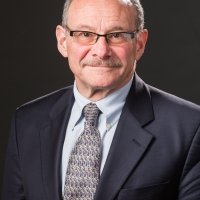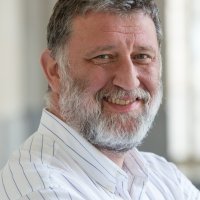WEBCAST: COVID-19 in Russia: Social, Regional, and Medical Responses
Since the coronavirus outbreak hit Russia, the government has responded slowly, taking a conservative approach to mandatory closures, public health measures, and social support. The Kremlin has also deferred to regional governors to take the lead in responding to the crisis, a marked departure from its notoriously centralized system. Judy Twigg, Robert Heimer, and Sergey Parkhomenko considered Russia’s response to the pandemic and its implications for domestic politics, social welfare policy, and regional governance.
SUMMARY
In a panel chaired by Kennan Institute Director Matthew Rojansky, speakers Judy Twigg (Professor of Political Science, Virginia Commonwealth University), Robert Heimer (Professor of Epidemiology, Yale School of Public Health), and Sergey Parkhomenko (Journalist and Senior Advisor, Kennan Institute) discussed the Russian civil and political responses to the COVID-19 pandemic
Judy Twigg began by sharing the most recent statistics on Russian COVID-19 outbreak, which rank Russia as the second worst outbreak globally but with a low fatality rate. Twigg pointed out, however, that critical questions surround the accuracy of these statistics. Twigg raised the topic of broader issues in the healthcare response, such as shortages of personnel and hoarding of personal protective equipment, “widespread despair” among healthcare workers, and the failure of the state to deliver wages and insurance pay-outs. Twigg then shifted attention to the political ramifications of the crisis in Moscow and Russia’s regions, the social impact of the outbreak, and the potential long-term effects on Russia’s healthcare system.
Sergey Parkhomenko continued the discussion by calling attention to Putin’s surprisingly passive role during the crisis and the lack of state support to businesses. Parkhomenko cited Putin’s apparent abdication of responsibility to regional authorities who are now tasked with enforcement. Parkhomenko pointed out, however, that the majority of these regional authorities have little connection to their communities or experience in power. Parkhomenko then turned to the Russian state’s lack of support for businesses and individuals, hypothesizing that Putin was likely withholding funds to be distributed ahead of the constitutional referendum that would keep him in power.
Robert Heimer concluded the discussion by drawing parallels between the American and Russian responses, such as the abdication of federal responsibility and distrust of government restrictions. Heimer identified the lack of proactive measures such as contact tracing, testing, and public adherence to restrictions as systematic barriers in Russia to reopening. Heimer then turned to the question of Russia’s low death rate, explaining that the cause-of-death for COVID-19 patients is likely being inaccurately recorded, as has occurred in Russia during previous public health crises.
Selected Quotes
Judy Twigg
“This is widespread despair among doctors and healthcare workers about their lack of personal protective equipment, about their inability to save their patients, about pressures from local bureaucracies to produce results in a situation where producing results is so difficult and impossible in many circumstances.”
“People in the regions where there are outbreaks are looking for the specific individuals, the fall-guys, the scapegoats, the people to blame for the spread of the virus. Which rich guy flew here from Moscow and brought coronavirus with him into our region? And that’s adding to a resentment that people in the regions have about their economies and their societies being under lockdown under those orders for a pandemic that they see as still centered in Moscow.”
Sergey Parkhomenko
“This shift of power is not the authority, not the money, not the possibility to govern, but only responsibility.”
“Russia has a relatively big reserve for national welfare… and it’s quite obvious that Putin is trying to save this money.”
Robert Heimer
“My sense of history leads me to believe that Russia and the United States are two countries in some ways separated by birth, that the history parallels between the two countries are absolutely striking in terms of when things happen... the United States has always been at least a few years or a few months of a few weeks ahead of Russia and that seems to be exactly the same case here with the COVID-19 epidemic, that we’re seeing a delay in Russia that really is strikingly familiar.”
“There seems to be no centralized effort to produce tests that I’m aware of, either in the U.S. or in Russia, again a striking parallel, and that many of tests might in fact be inaccurate.”
Speakers

Professor of Political Science, Virginia Commonwealth University


Journalist, publisher, organizer of civic projects
Moderator

President and CEO, US Russia Foundation
Hosted By

Kennan Institute
After more than 50 years as a vital part of the Wilson Center legacy, the Kennan Institute has become an independent think tank. You can find the current website for the Kennan Institute at kennaninstitute.org. Please look for future announcements about partnership activities between the Wilson Center and the Kennan Institute at Wilson Center Press Room. The Wilson Center is proud of its historic connection to the Kennan Institute and looks forward to supporting its activities as an independent center of knowledge. The Kennan Institute is committed to improving American understanding of Russia, Ukraine, Central Asia, the South Caucasus, and the surrounding region through research and exchange. Read more
